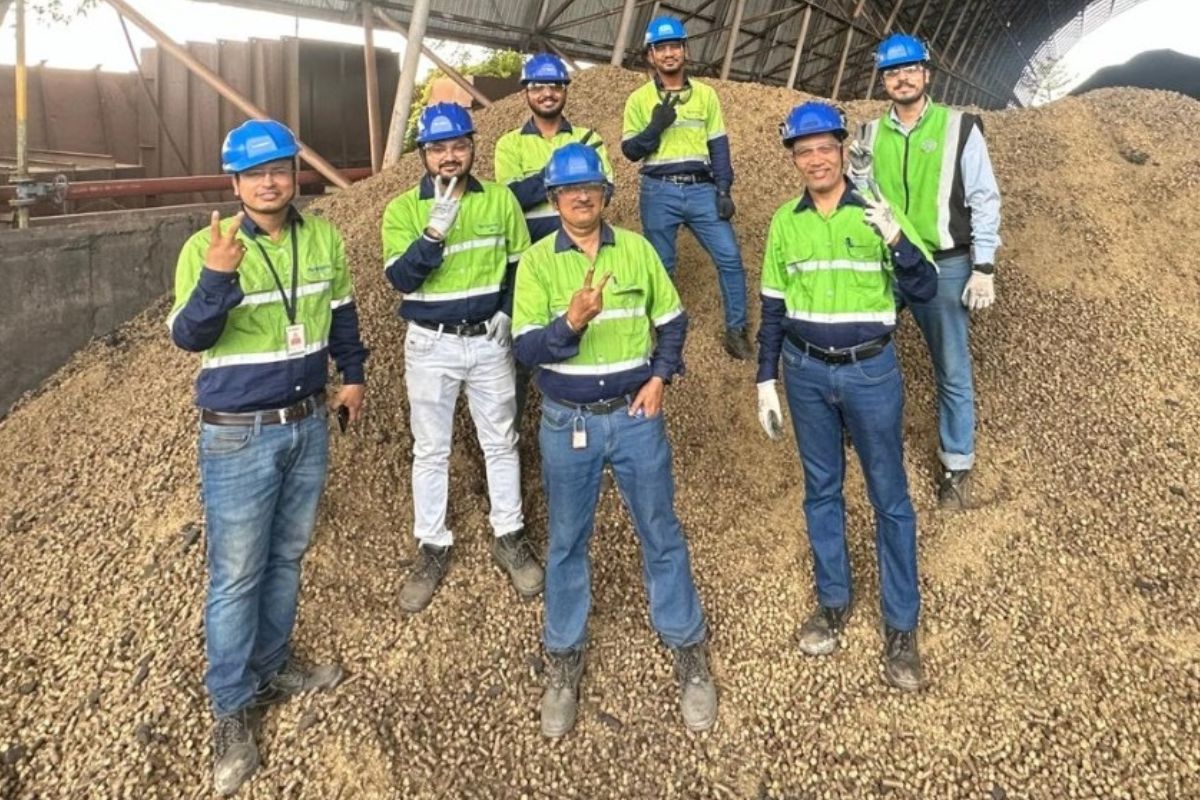National conference on sustainability at women’s college in Midnapore
The event, held from 19-21 March, was jointly organised by the departments of geography and zoology.

Vedanta Aluminium, one of India’s largest producers of aluminium, is making its fuel mix more sustainable with the deployment of biomass briquettes for power generation. The company is utilizing 20 tonnes of biomass briquettes per day at its alumina refinery in Lanjigarh, Odisha.
The move will help potentially decrease the unit’s greenhouse gas (GHG) emissions by more than 10,000 tonnes of CO2 equivalent each year, in addition to reducing its reliance on fossil fuels.
Advertisement
On the occasion of Earth Day 2024, this comes as a significant step forward in the company’s journey to achieve Net Zero Carbon by 2050 or sooner.
Advertisement
The biomass briquettes are made from agricultural residue sourced from local farmers, who would otherwise simply burn it leading to severe environmental pollution.
While fostering circular economy, Vedanta Aluminium is also augmenting farmers’ incomes in their areas of operations through this initiative by remunerating farmers for their crop stubble.
A similar initiative has been rolled out previously at BALCO, India’s iconic aluminium producer and a unit of Vedanta Aluminium based at Korba, Chhattisgarh.
Further, the company has entered into long-term power delivery agreements to source 1335 MW of renewable energy to power its operations nation-wide.
Speaking on the occasion, Mr. Pranab Kumar Bhattacharyya, CEO – Alumina Business, Vedanta Ltd said, “As India works towards integrating cleaner and more sustainable energy systems, the strategic deployment of biomass co-firing within our operations can play a crucial role in achieving emission reduction goals and supporting rural economies. It forms a critical part of our strategy to evaluate emerging technologies towards decarbonising our operations.”
On the occasion of Earth Day, the company organised focused awareness sessions for farmers at Jharsuguda, Odisha, under the aegis of its development project, Jeevika Samriddhi, which aims to boost income generation through more efficient methods of farming.
The company has also conducted trial runs of biodiesel as a ‘green’ fuel alternative for its fleet of commercial vehicles. In addition, it is the first to induct a 10-ton electric forklift within its operations, adding to India’s largest fleet of electric lithium-ion forklifts deployed at its plants in Odisha and Chhattisgarh.
Vedanta Aluminium has committed to decarbonizing 100% of its Light Motor Vehicle (LMV) fleet by 2030, aligned with the United Nations Sustainable Development Goal 7 (SDG7), which focusses on ensuring access to affordable, reliable, sustainable, and modern energy and SDG 13, which aims to limit and adapt to climate change.
Vedanta Aluminium has committed to achieving Net Zero by 2050, adopting a two-fold strategy of reducing it carbon footprint by increasing operational excellence and increasing renewables in its energy mix, while also offsetting its carbon footprint through extensive afforestation efforts.
Advertisement
The event, held from 19-21 March, was jointly organised by the departments of geography and zoology.
In a bid to lead the clean energy transition, the government has adopted a multi-pronged strategy to promote various alternatives to kerosene use, the government said on Monday.
Prime Minister Narendra Modi has announced that India and Poland have agreed on social security agreement. He stated that partnership between two nations has been strengthening in areas like new technology and clean energy.
Advertisement
